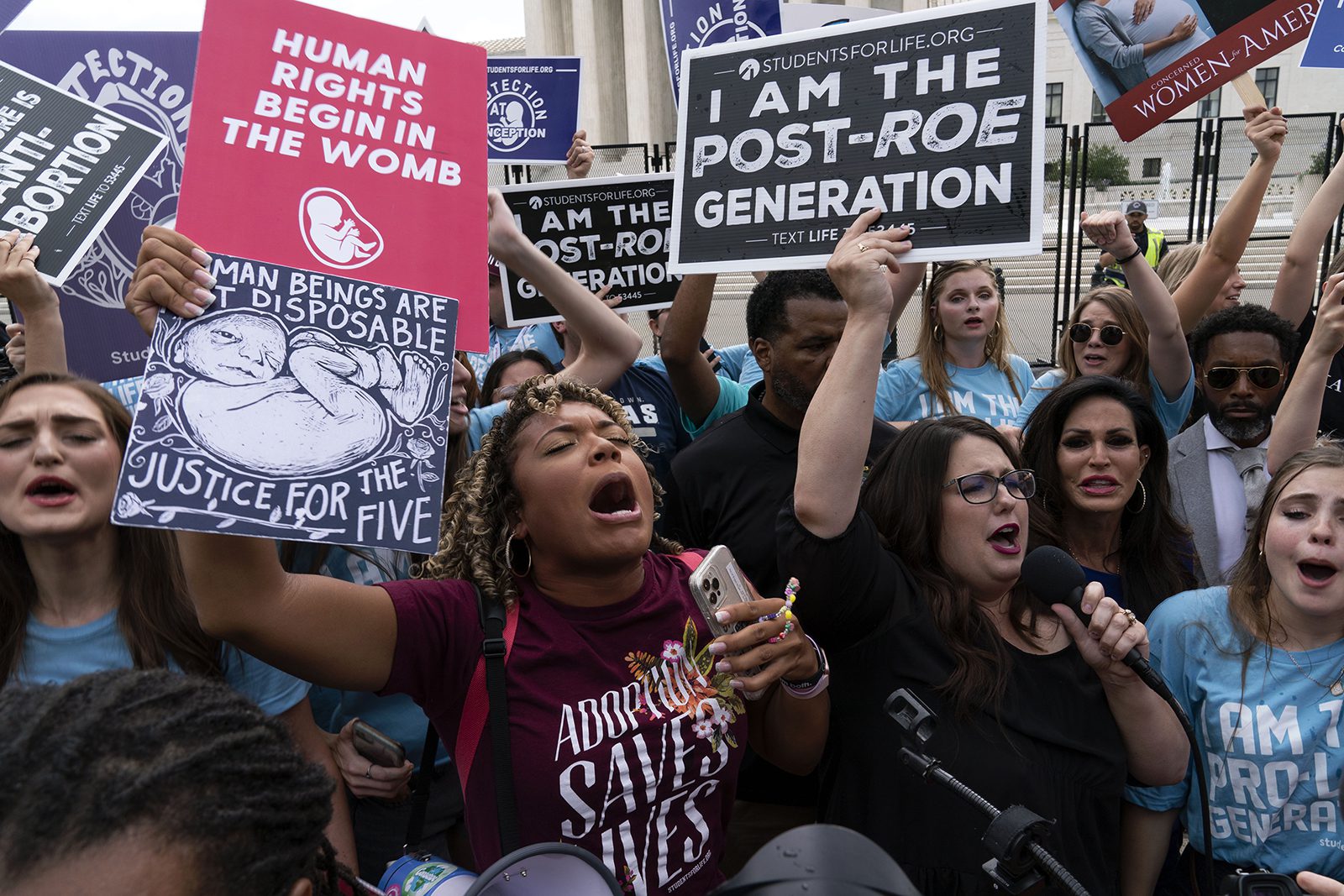Jennifer Holland, a University of Oklahoma professor who studies the history of abortion, sees abolitionist groups as a continuation of the broader anti-abortion movement. Holland said abortion foes have long had disagreements about strategy — whether they should push for an all-out ban on abortion or take a more incremental approach.
But they had the same goal: zero abortions.
Holland said abortion foes have generally held the idea that abortion is murder but have mostly wanted to blame abortion doctors rather than women. In the ’80s, the movement began to describe women who have abortions as victims who need to be saved. That line of reasoning allowed abortion foes to see themselves as being pro-women.
“I think that that has been one of the most successful lines of argument that the movement has put forward,” she said.

Anti-abortion protesters gather outside the Supreme Court in Washington, Friday, June 24, 2022. The Supreme Court has ended constitutional protections for abortion that had been in place nearly 50 years, a decision by its conservative majority to overturn the court’s landmark abortion cases. (AP Photo/Jose Luis Magana)
Now, she said, abortion foes can no longer ignore the tension between their core beliefs.
Timothy Head, executive director of the Faith and Freedom Coalition, dismisses the idea of criminal penalties for women who have abortions. He sees almost no support for that approach.
“I’m not aware of any state right now where that even looks realistically possible,” he said.
A recent Pew Research survey found that 14% of Catholics and 18% percent of Protestants — including a quarter of evangelicals (24%) — say a woman who has an illegal abortion should face jail time.

Timothy Head. Photo by Lynsey Weatherspoon, via Faith and Freedom Coalition
Head said his group would support a federal ban on abortion. But for now, the Faith and Freedom Coalition is still working through the implications of the Dobbs ruling before planning its next steps.
“We’re probably more in kind of a defensive analysis at the moment, to make sure that there isn’t anything from our perspective that is unfavorable to federal legislation,” he said.
The coalition is active in about two dozen states, where local partners will be working on legislation. Head said he expects to see about 15 different approaches to legislation post-Roe, depending on the state. He expects many of those states to implement laws banning most abortions and to set up criminal penalties for abortion providers. Head also expects more rules to regulate clinics, in places where abortion is still allowed.
Head said his group and other abortion foes would support what he calls “abortion alternatives” that give support to pregnant women and new mothers, such as supplying diapers and baby formula and organizing parenting classes.
He also expects to see more creative solutions to restricting abortion, such as the civil enforcement process in Texas, where private citizens can sue abortion providers or anyone who “performs, aids or intends to aid in an abortion,” according to The Texas Tribune. Head said such lawsuits would make it harder for abortion providers to get insurance and could eventually put them out of business.
Head also expects abortion foes to borrow from the playbook of environmental activists — and become more active at shareholder meetings for companies that support abortion rights or who offer to pay expenses for employees who travel to states where abortion is allowed. He also said abortion foes will push for so-called long-arm statutes, which would allow states to prosecute out-of-state abortion providers who advertise across state lines.
“The glass is going to break in a lot of unexpected directions,” he said.
This article originally appeared here.

